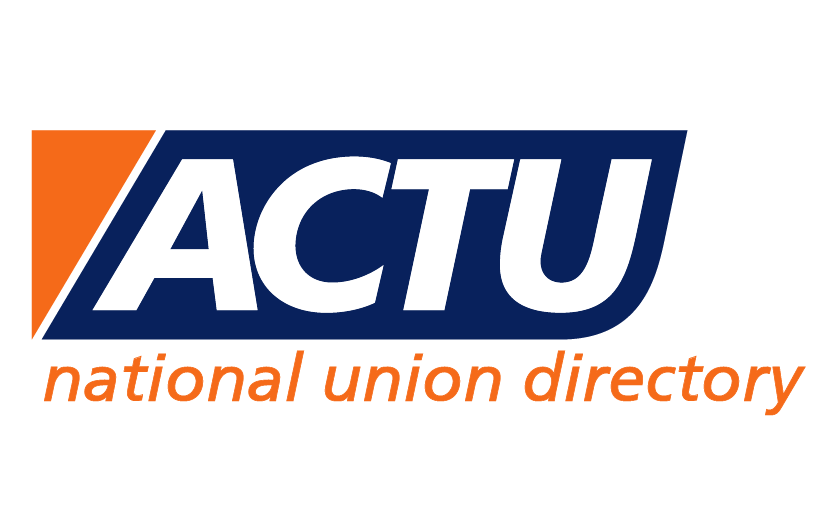Re: Modernising Business Registers and Director Identification Numbers legislation
The ACTU welcomes this opportunity to consult with Treasury on the draft Commonwealth Registers Bill 2018 and the Treasury Laws Amendment (Registries Modernisation and Other Measures) Bill. This draft legislationpackage deals with two distinct matters, each of which we deal with below: firstly, the creation of a new business register; and, secondly, the introduction of a director identification number (DIN).
A New Business Register
The proposed legislation would create a new Act called the Commonwealth Registers Act 2018 that would establish a new Commonwealth business registry regime. The new register would be operated by a Commonwealth body nominated by the Minister. The new register would assume and consolidate the 34 registers currently kept by ASIC as well as the Australian Business Register kept by the Commissioner of Taxation. Additionally, the framework anticipates that other government registers could be transferred to the new register in future.
We would be concerned if the centralisation and consolidation of these government business registers was part of a broader plan to privatise them. Whilst no indication of this is given in the supporting materials, the proposed step would make it easier to sell off these public assets. We note with concern that the current Government has proposed privatising ASIC’s business registers since at least 2013.[1] Privatisation is likely to lead to higher prices and unnecessary barriers to accessing important public information, for example on who owns and operates companies. We oppose any attempt to privatise business registers and invite the Government to make a firm commitment to retaining the registers in public hands. Were the proposed changes to proceed, we contend that the following should be ensured:
- Public access to information should be available online, with users able to easily search and analyse information at no or low cost. Any fees charged should be kept reasonable and where possible charged to those required to register the information rather than the public when accessing it; and
- In externalising the registers from ASIC and the ATO, no unnecessary barriers should be erected in the process that hinder ASIC and the ATO from accessing information in fulfilment of their regulatory, compliance and enforcement functions.
Director Identification Numbers
Schedule 2 of the draft Treasury Laws Amendment (Registries Modernisation and Other Measures) Bill 2018 amends the Corporations Act and the Corporations (Aboriginal and Torres Strait Islander) Act 2006 to introduce a mandatory director identification number requirement. We support the introduction of a DIN regime. As we have argued elsewhere, the implementation of a DIN regime is crucial to ensuring effective action against unlawful phoenixing and should be implemented post haste.
Some features of the proposed regime are that:
- New directors will have 28 days to apply for a DIN (or 15 months for existing directors during the transition period);
- There will be obligations on both the appointed director and company appointing them to notify the new registrar;
- There will be significant civil and criminal penalties for not registering or complying with the requirements;
- Existing protections would apply to providing false or misleading information regarding DIN registration; and
- The Registrar will have the power to make rules about the requirements, including extending the requirement to register from applying directors to other company officers.
We make the following comments in relation to the proposed DIN:
- Whilst 28 days seems a reasonable time in which new directors must register for a DIN, 15 months would seem too long a period of grace for existing directors to transition to the new system. We see no reason why this period should be any longer than 6 months, given that the measure is aimed at helping identify, eliminate and prevent phoenixing behaviour and given the well-documented social and economic ills of phoenixing activity;
- Access to the DIN register should be open and free of charge, with protections against the future impost of fees. Free public access is necessary in order to provide maximum transparency to aid unions, the public and enforcement authorities in promoting corporate accountability and to guard against phoenixing behaviour. Hence, the registrar’s powers should not include the power to prescribe fees for accessing the DIN register;
- Any opportunities for avoiding accountability within the DIN regime should obviously be minimised. Whilst privacy concerns are legitimate, they should not be used as a screen behind which phoenix operators can hide. Hence, the disclosure framework and proposed data standards should ensure that sufficient information is made available to the public to identify registered directors;
- No director should be able to cancel a DIN and reapply for a new and different DIN as this would give them the capacity to prevent their historical behaviour being tracked. Hence, the registrar should not have the power to give someone a different DIN than one they have already been assigned; and
- As we argued in our recent submission to the Treasury consultation on draft legislation to combat illegal phoenix activity, it ought to be an offence for a person to appoint a straw director.[2] Accordingly, the DIN regime should include complementary offences for procuring or influencing a person to obtain a DIN for a straw director.
————
[1] https://www.smh.com.au/business/government-abandons-plans-to-outsource-asic-registry-20161219-gte4hx.html
[2]See ACTU Submission on the Exposure Draft of the Treasury Laws Amendment (Combating Illegal Phoenixing) Bill 2018 and Insolvency Practice Rules (Corporations) Amendment (Restricting Related Creditor Voting Rights) Rules 2018, dated 27 September 2018.







